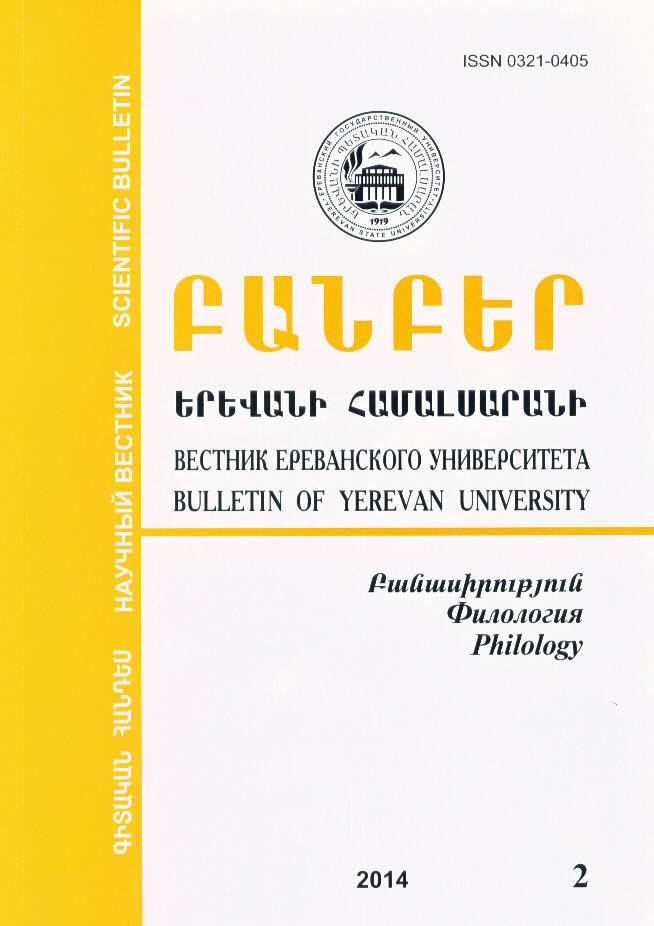Edward Aghayan's Contribution to Theoretical Linguistics and Teaching It
DOI:
https://doi.org/10.46991/BYSU:B/2014.5.2.015Keywords:
structural linguistics, levels of language structure, linguistic unit, phoneme, sound, language, speech, activity, opposition, unity of oppositesAbstract
When evaluating Edward Aghayan's contribution, two aspects are to be taken into consideration: his fifty-year teaching practice and his scientific studies, particularly his "Principles of Linguistics", which is one of the main textbooks used to teach general linguistics at philological faculties of all universities in Armenia. As it is impossible to cover Edward Aghayan's linguistic views in their entirety in a few pages, this paper is an attempt to reveal the principle of his approach to language. His interpretations of the concept of phoneme and its relation to sound, the problem of stratification of language, the interrelation between language and speech are observed here as striking examples of his approach to linguistic problems. The analysis of all these, as well as other problems reveals the dialectical approach of the author, expressed in his refusal to absolutize oppositions, taking into account their unity, revealing transitional stages between poles. These manifestations of dialectics as a methodological
principle that guarantees the true scientific knowledge give special significance to Edward Aghayan's legacy in general linguistics.
Downloads
Published
How to Cite
Issue
Section
License
Copyright (c) 2021 Bulletin of Yerevan University

This work is licensed under a Creative Commons Attribution-NonCommercial 4.0 International License.

